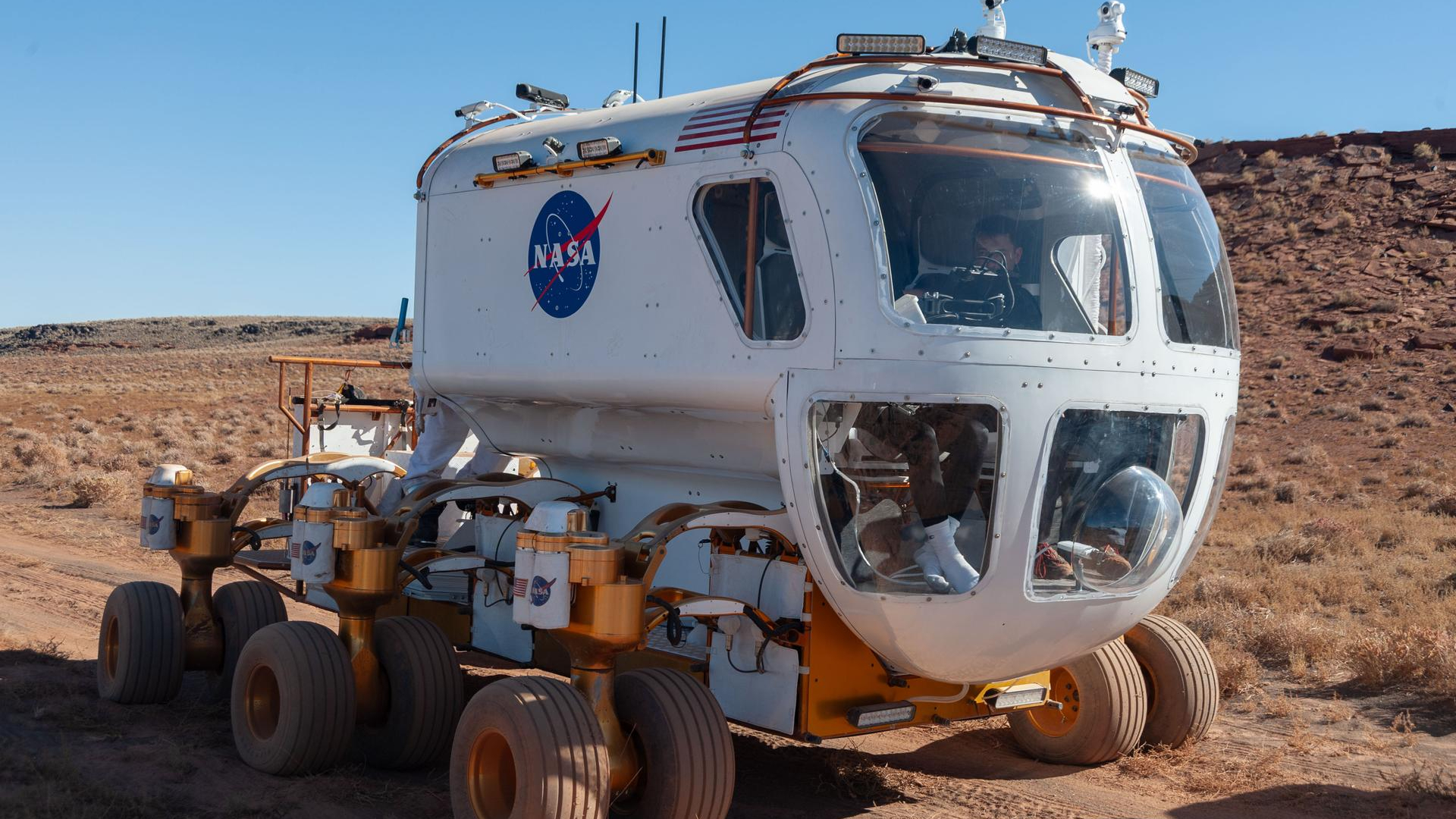NASA's Lunar Electric Rover rolls across Arizona | Space photo of the day for Oct. 9, 2025
The vehicle could help make hard-to-reach places on the moon more accessible to exploration.

Breaking space news, the latest updates on rocket launches, skywatching events and more!
You are now subscribed
Your newsletter sign-up was successful
Want to add more newsletters?

Delivered daily
Daily Newsletter
Breaking space news, the latest updates on rocket launches, skywatching events and more!

Once a month
Watch This Space
Sign up to our monthly entertainment newsletter to keep up with all our coverage of the latest sci-fi and space movies, tv shows, games and books.

Once a week
Night Sky This Week
Discover this week's must-see night sky events, moon phases, and stunning astrophotos. Sign up for our skywatching newsletter and explore the universe with us!

Twice a month
Strange New Words
Space.com's Sci-Fi Reader's Club. Read a sci-fi short story every month and join a virtual community of fellow science fiction fans!
As humanity eyes returning to the moon, countries like the U.S. and China are working to develop key infrastructure to make lunar exploration, and possibly even moon mining, feasible. This includes lunar rovers, which can make faraway areas of the moon more reachable.
What is it?
The Lunar Electric Rover (LER) was developed as a versatile exploration vehicle designed to support long-duration surface missions on the moon. Unlike the Apollo-era lunar rovers, which were unpressurized and limited in range, the LER offers a pressurized cabin that allows astronauts to live and work inside for days without needing to return to a base habitat, potentially making harder-to-reach areas more accessible.
Where is it?
This photo was taken at Black Point Lava Flow in northern Arizona.
Why is it amazing?
The LER tests are part of NASA's Desert Research and Technology Studies ("Desert RATS") campaign. The program uses terrestrial environments like the harsh deserts of Arizona to simulate the conditions on other planets. The volcanic rock formations at Black Point Lava Flow provided challenges similar to those expected on the moon, making it a valuable testing ground for equipment, operations and human factors.
Want to learn more?
You can read more about lunar rovers and NASA's future trips to the moon via its Artemis program.
Breaking space news, the latest updates on rocket launches, skywatching events and more!
Kenna Hughes-Castleberry is the Content Manager at Space.com. Formerly, she was the Science Communicator at JILA, a physics research institute. Kenna is also a freelance science journalist. Her beats include quantum technology, AI, animal intelligence, corvids, and cephalopods.
You must confirm your public display name before commenting
Please logout and then login again, you will then be prompted to enter your display name.

